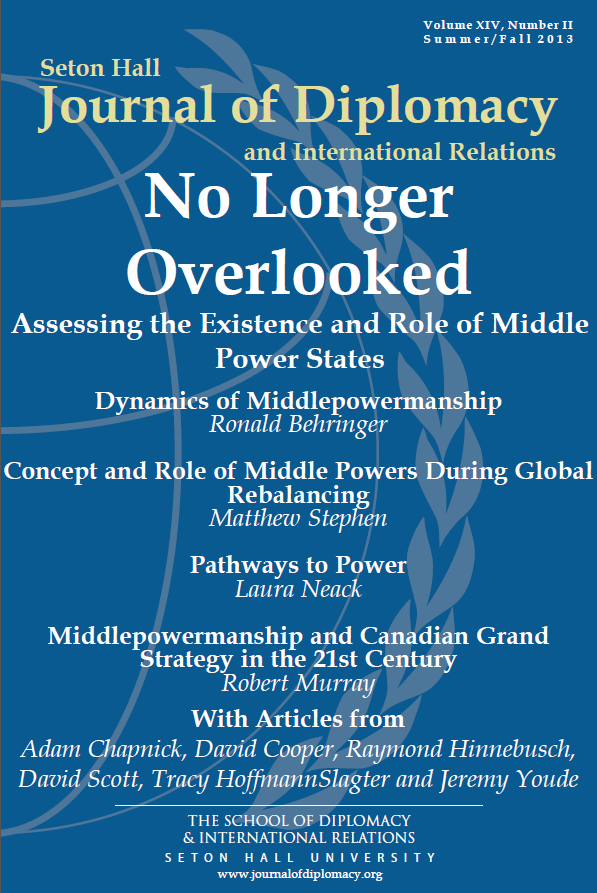No Longer Overlooked: Assessing the Existence and Role of Middle Power States
From Teale Harold, Editor-in-Chief
As international relations scholars, we strive to find order in a disorganized world, to categorize and classify phenomena and events. But much in international relations defies categorization or fails to neatly fall into one category or another.
Such is the story of middle power states. The nature of middle powers is a controversial topic, with debates ranging from which countries deserve the classification, to whether or not “middle power” is even a valid identity. In that spirit, this issue continues the conversation. Our articles debate the classification and study the contributions and characteristics of those countries often considered middle powers.
This issue is notable for the depth covered on the subject of middle powers. Drs. Behringer, Cooper, and Stephen all attack the issue at its conceptual root. Their articles debate the different international relations theories of middle powers and uses of such definitions, in an apparent attempt to create a method to diagnose a middle power. Noted scholar Laura Neack takes a traditional approach in her study, comparing typical middle powers states in order to establish a “pathway to power” for those countries wanting to reach the middle tier. The subject is studied in other ways, from the influence of domestic institutions to exhaustive studies of specific countries. With their different foci, this volume takes a 360 degree look at the enigma of middle powers.
Our authors are passionate about the subject and this passion is palatable in the pages of this issue. We hope that you too become swept up in a debate that is happening here and now, and as you turn the last page that you may be ready to join the quest for classification. It is an important conversation as we try to solve another aspect of the international relations puzzle. The more we know about our world and how it works, the better we can work to achieve a brighter future.
Table of Contents
- Dynamics of Middlepowermanship – Ronald Behringer
- Somewhere Between Great and Small: Disentangling the Conceptual Jumble of Middle, Regional, and ‘Niche’ Powers – David Cooper
- Concept and Role of Middle Powers during Global Rebalancing – Matthew Stephen
- Pathways to Power – A Comparative Study of the Foreign Policy Ambitions of Turkey, Brazil, Canada and Australia – Laura Neack
- Failed Regional Hegemons: The Case of the Middle East’s Regional Powers – Raymond Hinnebusch
- Middlepowermanship and Canadian Grand Strategy in the 21st Century – Robert Murray
- Middle Power No More? Canada in World Affairs Since 2006 – Adam Chapnick
- Australia as a Middle Power: Ambiguities of Role and Identity – David Scott
- Creating Good International Citizens: Middle Powers and Domestic Institutions – Jeremy Youde and Tracy Hoffmann Slagter

